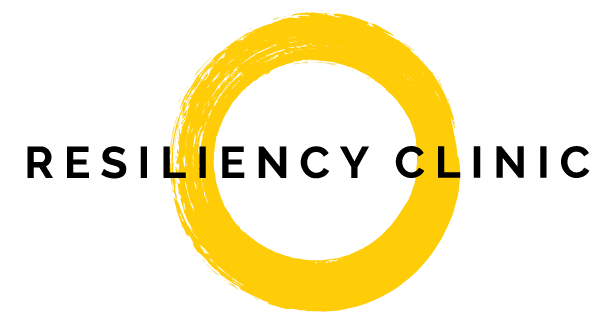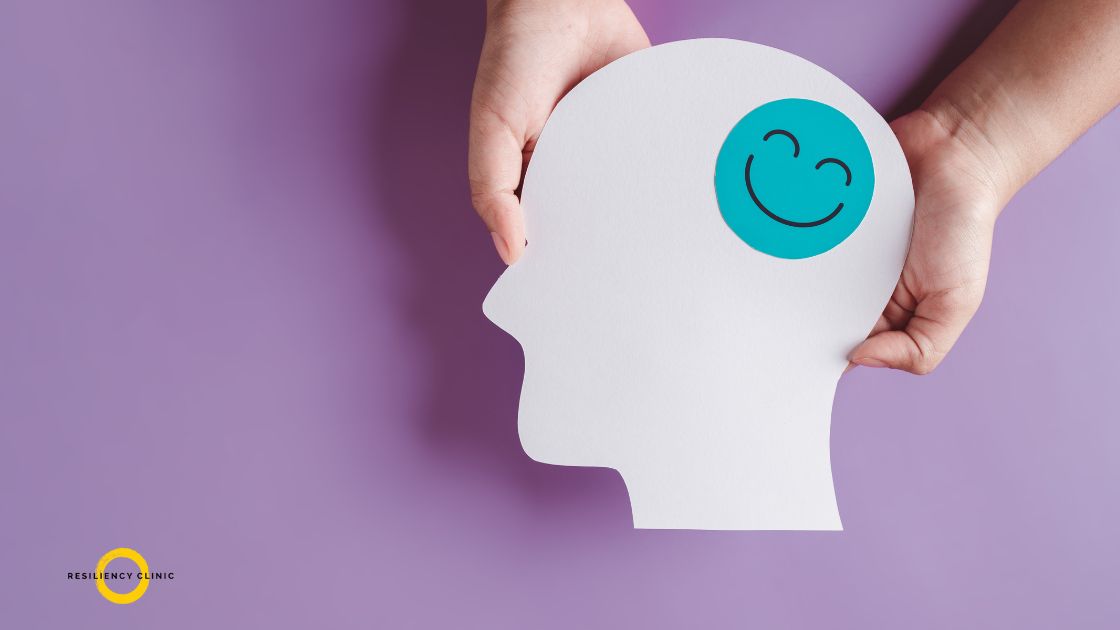Key Highlights
- Dive into the exciting world of the psychology of happiness and how it affects our lives.
- Find out the science-based basics of happiness, like enjoyment and a meaningful life.
- Discover useful tips and daily habits to boost your happiness.
- See how happiness changes in different cultures and at various stages of life.
- Look into how technology might help improve our well-being.
Introduction
Positive psychology stands out as an important guide in the search for happiness. It provides useful insights into the science of happiness, which examines what helps create a joyful and fulfilling life. By learning the ideas and research found in positive psychology, we can find helpful tools to improve our own happiness and well-being.
What are the Fundamentals of Happiness?
Happiness is a complex idea. People often see it as a feeling full of joy and contentment. It means being satisfied with life. Happiness includes both quick positive emotions and a deeper sense of meaning.
Happiness is not a fixed goal. Instead, it is a process that can change based on many things. Knowing the basics of happiness is important for improving our lives. By noticing the different levels of happiness, we can take part in activities that help boost our emotional state and create a sense of purpose. This helps us live a more fulfilling life.
Happiness in Psychological Terms
In psychology, happiness is often called subjective well-being. It includes how a person thinks and feels about their life. This means it covers positive emotions, happiness levels, and overall life satisfaction.
Positive affect means feeling good emotions like joy, contentment, and love. This is important for overall happiness. When people feel more positive emotions, they usually feel more satisfied with their lives and feel fulfilled.
Also, happiness does not just come from what happens around us. It is also affected by our own thoughts, beliefs, and attitudes. By knowing more about these factors, we can find ways to improve our own happiness and well-being.
The Evolutionary Perspective on Happiness
From the view of evolutionary psychology, happiness helps us survive and reproduce. When we meet our basic needs for food, shelter, and social ties, we feel positive emotions. These emotions tell us that we are safe and healthy.
In addition, happiness pushes us to do things that increase our chances of survival. We seek out resources and build strong relationships with others. This feeling also helps our health and how long we live.
Throughout history, happiness has been important for both individual and group success. By understanding where happiness comes from in our evolution, we can see how it greatly affects our lives.
The Science Behind Happiness
Research over many years shows clear links between happiness and good outcomes in life. Many studies, especially those in the Journal of Personality and Social Psychology, have found that happiness affects our health, relationships, careers, and well-being.
Long-term studies look at how happy people are and show that they have better immune systems. They get healthy faster after being sick, and they usually live longer. These results emphasize the real benefits of being happy in our lives.
Key Research Findings on Happiness
The World Happiness Report is shared each year by the United Nations Sustainable Development Solutions Network. It gives us important details about happiness around the world. Using a careful and scientific approach, the report lists countries by different things that affect happiness. These include income, social support, health, freedom, and trust.
Studies show that happiness brings many good things, such as:
- Better Physical Health: Happier people often have strong immune systems, lower blood pressure, and a lower chance of getting long-term diseases.
- Stronger Relationships: Happiness helps create better social connections, which leads to empathy, compassion, and caring relationships.
- More Productivity and Success: When we feel happy, we are more likely to face challenges with hope, strength, and creativity, which can lead to greater success.
Looking at these findings helps us understand how happiness greatly affects both people and societies.
How Our Brain Processes Happiness
Our brains are designed to feel and understand happiness. When we have enjoyable moments, our brain pathways light up. This releases good chemicals like dopamine, serotonin, and endorphins.
These chemicals work with the brain’s reward system, giving us feelings of pleasure and encouraging happy actions. Knowing how happiness works in our brains helps us see how our thoughts, feelings, and body connect.
By doing things that boost these brain pathways, like being grateful, building good relationships, or following our interests, we can improve our brain’s ability to be happy.

Types of Happiness Explored
The area of positive psychology talks about two main types of happiness: hedonic and eudaimonic well-being. Knowing the difference between these two helps us understand happiness better and how it affects our overall feeling of well-being.
Hedonic happiness is about pleasure and enjoyment. It comes from fulfilling our immediate desires. Eudaimonic happiness, however, is more about having a sense of purpose. It brings meaning and fulfillment to living true to our values and reaching our full potential. Both types of happiness matter. It is important to find a balance between them to feel truly fulfilled over time.
Hedonic Happiness: Pleasure and Joy
Hedonic happiness means seeking pleasure and joy. This kind of happiness usually comes from quick pleasures and sensory experiences. It includes small joys like eating tasty food, listening to happy music, or doing fun activities.
Finding hedonic happiness is important for a well-rounded life. However, it’s good to remember that this type of happiness only offers short-term feelings of joy. Our brains are good at getting used to happy experiences. This can cause what we call the hedonic treadmill. This means our happiness tends to go back to where it started, even after good things happen.
So, while it’s nice to enjoy happy moments, it’s also very important to find other ways to be happy. These can offer a deeper feeling of joy in life.
Eudaimonic Happiness: Fulfillment and Purpose
Eudaimonic happiness is more than just temporary joy. It is about having a life filled with purpose, meaning, and self-discovery. This type of happiness involves doing things that match our values, working towards goals that matter to us, and taking part in activities that help us grow as people.
When we act in ways that reflect who we truly are and contribute to something bigger, we feel a deep sense of fulfillment and purpose. Eudaimonic happiness is often linked to a state known as flow. This is when we are fully focused and engaged in a task that connects with our skills but does not make us feel overwhelmed.
To cultivate eudaimonic happiness, we should find our strengths, follow our passions, and join activities that line up with what we believe in. This journey supports our personal growth and leads to a satisfying life.
Factors Contributing to Happiness
Research shows that happiness comes from a mix of genes, life situations, and the environment. Our genes help set our basic happiness levels, which is called the genetic set point. However, our choices and experiences also impact how happy we feel.
Positive psychology highlights that, even with our genetics, we can boost our happiness levels. We can do this through purposeful actions and by taking charge of our lives. By learning about what makes us happy, we can build a life that is richer and more joyful.
The Role of Genetics in Our Happiness
Studies on twins and families show strong evidence that our genes affect our happiness. This means our genes help decide how likely we are to feel positive emotions. The set point theory says that everyone has a happiness baseline set by their genetics. Over time, we tend to return to this baseline, even after big life events.
But remember, genetics is not everything. Our genes lay the groundwork, but they do not decide how happy we will be. Environmental factors, personal choices, and intentional activities can greatly change and improve our well-being beyond our genetic set point.
By focusing on things we can control, like building positive habits and creating meaningful relationships, we can shape our happiness levels and lead a more joyful life.
Environmental Influences on Happiness
Our physical and social surroundings, life happenings, and daily activities are important for our happiness. External factors like our support network, how good our relationships are, financial stability, and healthcare access all affect our well-being.
Good life events can lift our happiness for a while. Things like getting married, reaching a personal milestone, or having a baby can create a boost in joy. Still, how we adjust to these changes and feel thankful can help keep that happiness going longer.
In contrast, tough life events such as losing a job, getting sick, or losing someone we love can hurt our happiness. However, studies show that being strong, having good coping skills, and a firm support system can lessen these negative effects. This can also help us grow positively after hard times.
Strategies for Cultivating Happiness
The journey to find happiness is a continual process. It takes effort and the building of good habits. We can increase our happiness and well-being by including mindfulness, gratitude, and strong social relationships in our everyday lives.
These tips are not quick fixes. They require us to change how we think and act. These changes can make a big difference in our overall life satisfaction and happiness levels. Let’s look at some simple ways to bring more happiness into our daily routines.
Mindfulness and Its Impact on Well-being
Mindfulness is a practice based on old wisdom. It means focusing on the present moment without judging it. By being more aware of now, we can lower stress, manage our emotions better, and enjoy our experiences more.
Meditation is a big part of mindfulness. Studies show it can help reduce anxiety, boost focus, and create calm and well-being. You don’t need to spend hours meditating to be mindful. Just taking a few moments to breathe mindfully or feel thankful can help.
Here are some easy ways to add mindfulness to your daily life:
- Spend a few minutes each day on mindful breathing.
- Notice your senses while you eat or walk.
- Think about things you appreciate to practice gratitude.
The Importance of Gratitude in Daily Life
Gratitude is a simple but strong feeling. It means focusing on and appreciating the good things in our lives. When we practice thankfulness, we can change how we see things. This can help us feel more positive emotions and improve our life satisfaction.
By taking time to enjoy the simple joys, good deeds, and blessings around us, we train our minds to focus on the positive. This change in view can greatly impact our overall happiness and well-being.
You can start a gratitude journal, write thank-you notes, or share your appreciation with loved ones. Practicing gratitude regularly can help our brains learn to notice and value the good things, which leads to more happiness.
Building Strong Social Connections
As social beings, people need connection and a sense of belonging. Building strong social relationships and creating community ties are very important for our happiness and health.
When we have a support system made up of friends, family, and community members, we feel secure and get emotional support in tough times. Also, having deep talks, taking part in activities together, and doing kind things for others help to strengthen our bonds and improve our lives.
Make time for the people you care about. Join a club or group that matches your interests. You can also volunteer in your community. Putting effort into social connections is a way to boost our own happiness and that of the people around us.

Obstacles to Happiness: How to Overcome
Dealing with obstacles is an inherent part of the journey towards happiness. When faced with negative emotions and thoughts, it is crucial to acknowledge them without judgment. Navigating life’s challenges and setbacks requires resilience and self-compassion. By practicing mindfulness and reframing setbacks as opportunities for growth, one can overcome these obstacles. Surrounding oneself with a strong support system and seeking professional help when needed are also essential steps in overcoming hurdles that hinder happiness. Remember, it’s okay to ask for help in the pursuit of a happier life.
Dealing with Negative Emotions and Thoughts
Negative emotions and thoughts are natural aspects of life that can impact our well-being. In the field of psychology, understanding how to cope with these challenges is essential for overall happiness. By acknowledging and accepting these feelings without judgment, individuals can begin the process of managing them effectively. Engaging in self-care activities, such as mindfulness or talking to a trusted person, can provide emotional support during difficult times. Developing healthy coping mechanisms and seeking professional help when needed are vital steps in navigating through negative emotions and thoughts.
Navigating Life’s Challenges and Setbacks
Dealing with unexpected challenges and setbacks is an inevitable part of life. It is during these tough times that our resilience and coping mechanisms are truly put to the test. Whether it’s a personal loss, a career setback, or health issues, how we navigate through these adversities can significantly impact our overall well-being. It’s essential to acknowledge our emotions, seek support from loved ones, and practice self-care during such moments. Remember, facing challenges head-on can lead to personal growth and newfound strength in the face of adversity.
Happiness in Different Life Stages
Developmental psychology shows that our happiness levels can change at different stages of life. Knowing how happiness trends with age can help us manage life changes and stay happy as we grow older.
From the joys and challenges of childhood to the shifting priorities in adulthood and aging, each stage offers chances for growth and happiness. By adjusting our expectations and concentrating on what makes us feel good at each stage, we can move through life with more strength and satisfaction.
Childhood and Adolescence: Laying the Foundation
Childhood and adolescence are important times for our emotional growth. They help shape our beliefs, values, and ways of thinking that can affect our happiness later in life. It is important to give kids a loving and supportive environment. This helps boost their emotional intelligence and encourages their interests, which is key to their well-being.
Having positive early experiences, like feeling loved and accepted, making friends, and achieving small goals, leads to higher levels of happiness during childhood. These experiences also set a strong base for happiness in the future.
Additionally, getting children involved in activities that spark their creativity and curiosity can increase their levels of happiness. It also helps them develop important life skills. As kids grow into teenagers, it is crucial to provide them with a supportive space to handle the challenges they face at this stage.
Adulthood and Aging: Maintaining and Enhancing Happiness
Adulthood brings new responsibilities, relationships, and experiences. These things can change our levels of happiness. Many people work to build strong careers, grow their romantic relationships, and find meaning in their work and personal lives.
During midlife, we often think about our values, goals, and what matters most to us. This reflection can lead us to adjust our priorities to fit who we are becoming. Research shows that job satisfaction, financial security, and health are important for happiness in adulthood. However, social connections and having a sense of purpose become even more important as we get older.
When we reach our senior years, it is important to adapt to new situations, keep our social connections, and do things that bring joy and purpose. Many older adults still report high levels of happiness and life satisfaction. Often, this comes from a deeper appreciation for life and the relationships they cherish.

Happiness Across Cultures
Happiness is something all people want, but how we show it and what makes us happy can differ a lot from one culture to another. Our cultural rules, values, and beliefs help shape what happiness means to us and affect how we seek and feel it.
Studies from different cultures give important information about happiness. They show us both the similarities and differences people have in how they experience joy. By understanding these cultural effects, we can see things from a wider view and better appreciate the many ways people find happiness.
Cultural Perspectives on Happiness
In individualistic cultures, like those in North America and Western Europe, happiness often links to personal achievements, independence, and self-expression. On the other hand, in collectivistic cultures, common in East Asia and Latin America, happiness usually connects to social harmony, interdependence, and playing one’s role in family and community.
These cultural differences show that happiness is not the same for everyone. It is a subjective experience shaped by social values and beliefs. For instance, in some cultures, being happy and showing it may be encouraged. In others, it might seem boastful or not right.
Even with cultural differences, research has found common factors that help people feel happy. These include strong social connections, having a sense of purpose, and feeling gratitude. By understanding and respecting these differences, we can be more culturally aware. This can help us promote more happiness for ourselves and in our communities.
Happiness in Ottawa, Ontario: A Local Outlook
Ottawa, the capital city of Canada, consistently ranks high in national and international happiness surveys. Factors such as a strong sense of community, access to green spaces, a thriving arts and culture scene, and a high quality of life contribute to Ottawa’s reputation as a happy city.
Local happiness indicators, such as low crime rates, a strong social safety net, and a commitment to environmental sustainability, create an environment where residents feel safe, supported, and connected to their community, contributing to overall urban well-being.
|
Local Happiness Indicator |
Status |
|
Sense of Community |
High |
|
Safety and Security |
High |
|
Access to Green Spaces |
High |
|
Arts and Culture Scene |
Thriving |
|
Social Support Network |
Strong |
Practical Exercises to Increase Happiness
Cultivating happiness takes effort. It involves adding daily habits and doing mental exercises. When we use action-focused strategies, we can slowly change our thoughts and actions. This helps us feel better and find overall happiness.
Keep in mind that happiness is a journey, not a goal. Begin with small changes that you can handle. As you get comfortable, try to add more activities to your daily life. Be patient and remember to celebrate how far you have come.
Daily Habits for a Happier Life
Incorporating good habits into our daily lives can really boost our happiness levels. Simple things can change our mindset and behaviours over time, leading us to a happier life.
Start by doing activities that you enjoy. This could be spending time in nature, listening to music, or working on a hobby. Also, focus on your physical health. Make sure to exercise regularly, sleep well, and eat healthy foods.
It’s important to remember that doing things consistently helps build good habits. When we actively take part in activities that improve our well-being, we create a circle that boosts our overall happiness and makes it a bigger part of our lives.
Psychological Exercises to Boost Happiness
In addition to our daily habits, doing psychological exercises can help us feel happier. These exercises can tackle negative thoughts and encourage positive emotions. One technique is cognitive reframing. This method, used in cognitive-behavioural therapy (CBT), helps us find negative thoughts and change them into better, more helpful thoughts.
Behavioural activation is another way to improve our mood. It encourages us to engage in fun activities. This means slowly bringing back activities we might have stopped doing because we felt low or less motivated. Simple things, like making plans to see friends, going for a walk in nature, or starting a creative project, can really lift our spirits and give us a sense of achievement.
We can also practice gratitude, mindfulness, and kindness. These are strong mental exercises that help us feel more positive emotions and enhance our overall well-being.

The Future of Happiness Research
As positive psychology grows, research on happiness also changes. New trends and methods are helping us better understand the many factors that affect our well-being.
In the future, happiness research will look at how technology can help us feel happy. It will also study how social media affects our well-being. Another area of interest is how genetics and epigenetics connect to happiness. By using these new ideas, we can learn more and find ways to improve our happiness and overall health.
Emerging Trends in Positive Psychology
Contemporary research in positive psychology looks to explore new areas and understand how people can thrive. Recent trends focus more on positive relationships, understanding character strengths, and using mindfulness and compassion strategies in different places.
Positive psychologists are also looking into how technology can help people feel better. They want to design tools that boost positive emotions, improve social connections, and support mental health.
By taking new views and enhancing the science of happiness, positive psychology gives us useful insights into living a happier, more meaningful, and more fulfilling life.
The Potential of Technology in Enhancing Happiness
Technology is often seen as having both good and bad sides. Yet, it has great potential to improve our happiness and well-being. There are useful tools like mindfulness apps, gratitude journals, and online sites that help us connect with others. These make it easy to work on being happier.
The field of well-being technology is growing fast. It aims to provide tech tools that can boost mental health, lower stress, and encourage positive emotions. We now have gadgets that track how we sleep and move, as well as virtual reality experiences that help us relax and ease anxiety. Technology is becoming more important in our efforts to achieve happiness.
It is also vital to use technology in a smart way. We need to find a balance between our time online and offline. If we use technology wisely, we can improve our well-being. This way, we can create a future where technology makes us happier instead of taking away from it.
Conclusion
In short, the search for happiness is a goal everyone shares. It does not matter who you are or where you are from. When we learn about happiness through science and psychology, we can find ways to improve our lives. By being mindful, showing gratitude, and building strong relationships, we can find more joy in our lives. Keep in mind that happiness is not just a final goal; it’s a journey. This journey is shaped by our daily habits and mental exercises. As we look into happiness research, using positive psychology and technology can help us explore further and grow. I hope your search for happiness is rewarding and helps you learn more about yourself along the way.
Frequently Asked Questions
What are the most effective daily habits to increase happiness?
Cultivating good habits can have a big impact on your happiness. Expressing gratitude, practicing mindfulness, being active, building social connections, and working on personal growth all contribute to a better life. These actions can increase positive affect and help you feel more fulfilled.
Can happiness be measured scientifically?
Yes, we can measure happiness in a scientific way. We use different happiness tests and well-being scales. These tools help us see how happy people say they are. This gives researchers helpful information to study and understand this special feeling.
How does culture influence individual happiness?
Culture plays a big role in how we see and show happiness. The norms, values, and beliefs of society help us understand what a happy life is. This can lead to individual differences in how people seek and feel happiness.
What role does age play in happiness levels?
Happiness levels can change as we grow older. This can happen because of changes in our development, life experiences, and shifting priorities. Studies show a U-shaped curve of happiness. This means that people tend to be happier when they are young and again when they are older. It shows that feeling good is important at all stages of life.
How can technology contribute to our happiness?
Technological progress has created digital tools and positive technology that help increase happiness. These tools offer chances to build good habits, enhance mental health, and boost social connections. They make the user experience better and support overall well-being.
…
Sources
https://link.springer.com/journal/10902
https://www.ncbi.nlm.nih.gov/pmc/articles/PMC3008353
https://doi.org/10.1007/s10902-005-0868-8
https://bmcpublichealth.biomedcentral.com/articles/10.1186/1471-2458-13-119






